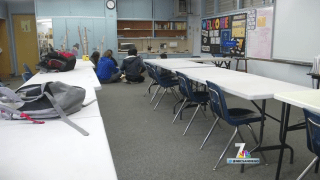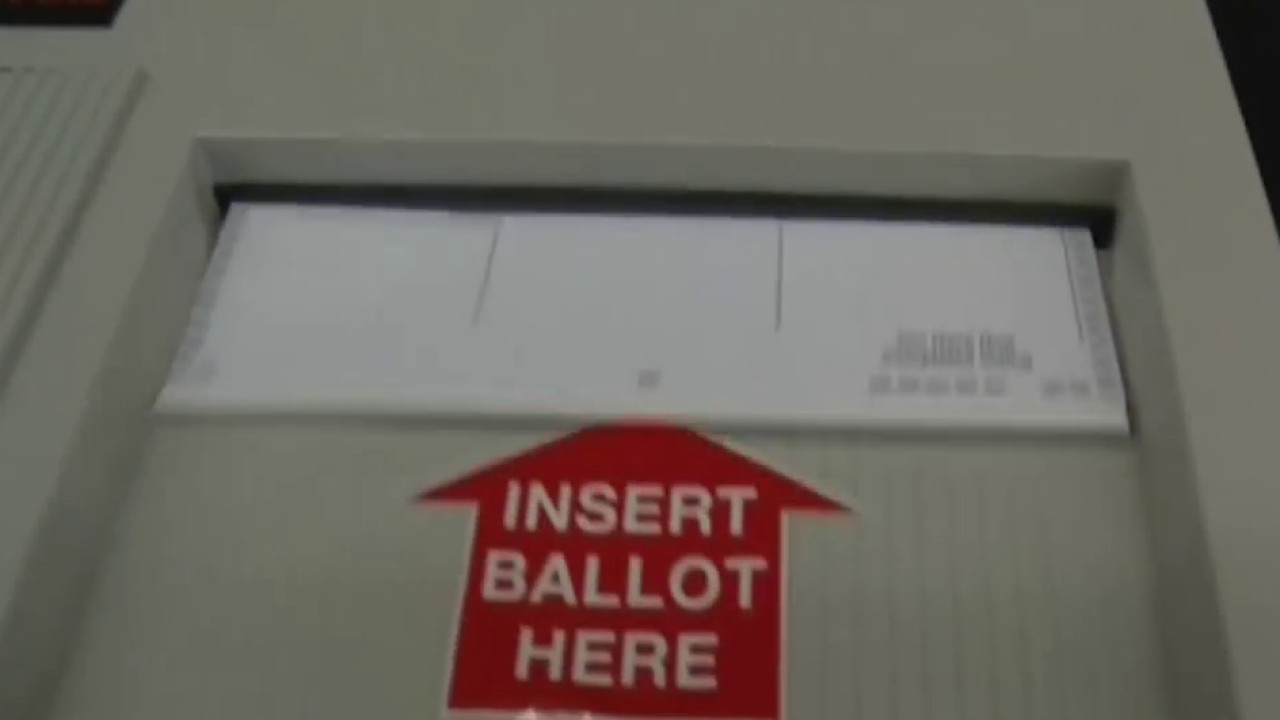
Many children, and parents, are understandably anxious with the beginning of the school year quickly approaching.
On Thursday, doctors with Advocate Aurora Health hosted a live chat to answer parents questions about the coronavirus, in hope of easing their concerns about the virus and heading back to school.
Questions and answers are listed below:
Q: HOW ARE MY CHILDREN AFFECTED BY CORONAVIRUS?
We know that children do get COVID-19. But they don't get it to the same degree or severity that adults do. We're seeing a lot fewer cases. Most of the data is saying that the incidence of pediatrics in the entire population with COVID is somewhere around 2%. Some data is saying six up to 6%. Time will tell, but the incidence is low. The children who do get COVID tend to be mildly ill. A certain percentage are asymptomatic and less than 10% are hospitalized, so that they don't get as ill as the adults do. That being said, there are very few kids that have developed this syndrome called MIS-C, which is a multi inflammatory syndrome in children, which was first recognized in Europe and now is being seen in the states, and Advocate Children's has taken care of a few of those kids. It exists, so we know that we need to be aware of it. Basically, I think it's also important to remember that kids are susceptible to a lot of illnesses, including the flu, which actually could be worse in the pediatric population based on the the current data that we have. Time will tell. And I think we have to be mindful, as everybody knows that.
Q: HOW HAVE YOU SEEN THE SYNDROME MIS-C AFFECT KIDS?
It's very rare. But I have personally taken care of patients with it in the ICU, and they are very, very sick. So we want parents to know that it exists and that they should be educated about it and the signs and symptoms they should look for and when to bring their child in to see us. The virus can cause like a hyper immune response, and that causes inflammation in different organ systems in the body. This can affect the brain, the heart, the kidneys, even the lungs. So these patients can be very sick. Those symptoms can range from headache and neck pain, to redness of their eyes to vomiting and diarrhea, because it affects multiple different organ systems. We've seen this happen in patients who were coded positive or had been in contact with someone who did have the virus as well.
Local
Q: WHAT'S YOUR ADVICE FOR CHILDREN AND PARENTS WHO ARE FEARFUL ABOUT THE RETURN TO SCHOOL?
Some children will be apprehensive about returning to school. But as parents, we also need to try to differentiate between our fears and those of children, especially if the plan is for them to return. We know our children pick up on our emotions, including fears about returning to school, and some of that is just unavoidable. But we want to try not to add additional anxiety onto our children about this, you know, everything keeping them safe doesn't have to be in scaring them. But it's hard to sit down and reassure a child when you're tangled up in knots and feeling very fearful about this.
Q: WHEN SCHOOL STARTS, SHOULD KIDS STAY AWAY FROM THEIR GRANDPARENTS?
I think it depends on the situation. As we mentioned in the last session, you know, if you have a chronic medical condition or have some other issues, we probably would not want to, you know, bring a lot of people into that situation. If you're a healthy person, and you can still do the social distancing, meeting outside, not a lot of hugging or anything, we probably can do it in a safe manner. But I think it's each each individual's personal decision based on the risk factors.
Q: HOW ARE YOU HANDLING PARENTS AND GRANDPARENTS WHO WANT TO VISIT THEIR LOVED ONES IN THE ICU?
You know, it's tough. It's really hard for families, because when your kids in the ICU, you know, they're very, very sick. So lots of family members want to come whether or not his parents grandparents, aunts, and uncles everyone wants to check in. But unfortunately during this time, we have to do the safest possible and not just for the patient, but for their families as well, too. So right now, we're really just allowing one parent at the bedside. And I know that's very difficult. And whenever I tell families that, you know, my heart just breaks.
Q: WHAT SAFETY MEASURES SHOULD FAMILIES TAKE ONCE THE KIDS RETURN HOME FROM SCHOOL EACH DAY?
Maybe start with washing hands and face might be a good start. But hand washing should always be number one. No matter who, what, when or where hand washing would be important.
Simple things like taking your shoes off before you come into the house or right at the entryway. And that's that's a good thing for everybody to follow. I have seen some guidance for health care workers about changing their clothes. It's not been real specific for kids.
Q: WHAT ARE THE BEST WAYS TO STILL ENCOURAGE SOCIALIZATION WITH KIDS?
So we know our children need socialization, we know it's going to look different right now. I think for children who do return to school, although it will look different, they will have more opportunities for socialization, which is a good thing. But until then, and outside of that, like you said, outside play is a really good option. Parents can arrange bike rides, picnics, any sort of outdoor activities that you can do at a distance. Also, some families have felt comfortable creating bubbles where they have a family or two where they're comfortable with how that family is taking precautions. And they enable those children to play or allow those children to play in a little bit more of a natural way. I have an only child and she was very isolated. And so that's something that we made a decision to do in our neighborhood and it has been a game changer.
Q: IS IT OKAY FOR CHILDREN TO BE ON THE INTERNET MORE TODAY, NOW THAT THERE'S REALLY NOTHING ELSE FOR THEM TO DO?
I think that each family has to decide what's going to work for them and their balance. You know, if you could balance that with a little bit of outdoor time.
Other comments that say, for elementary school kids, my eight, 9-year-old has really benefited from doing FaceTime to, you know, one of their classmates and friends to keep those connections. And in fact, we've gotten real creative for a couple times..A drive-by playdate. So, we take the kids in the car, we stay in the car, but at least just to be able to see the others from their property has been really a fun experience for my kids. Obviously, you as a parent, you want to be very well aware of who your children are talking to online, that they're not meeting strangers or doing anything like that, but safely. It really could be a very nice social outlet to encourage that social development for children.
Q: AS PRACTICING PHYSICIANS ARE YOU GETTING YOUR FREE TIME, YOUR DOWNTIME, YOUR EXERCISE, YOUR FRESH AIR?
Working in this environment can be very stressful for us, you know, we see this and we live it every day. And it can be very scary. So even if your body shows you when it's time to take care of yourself, I remember when COVID first started, and I had some really tough cases in the ICU. And I don't think I was doing a great job with taking care of myself and I woke up at like three o'clock in the morning, my heart was racing, I could not stop thinking. And it was at that time that I really knew that you know, you really have… that was your wake up call. That was my wake up call. And I went on a walk at four o'clock in the morning because I just needed to go outside and I just really woke up the next morning and realized that you have to take care of yourself and do all the things that you tell other people to do.
Q: SHOULD WE BE CONCERNED ABOUT PROPERLY FITTING MASKS FOR KIDS?
For young ones…masks basically should be comfortable. But they should provide a seal over the nose and the sides of the face and then be comfortable enough that they're not tight around the ears so that the child will be willing to wear them. So I think that for the kids, especially the ones who are going to be going back to school, it's worth starting to practice wearing a mask, so that they don't go just like reset starting to get them ready for this so that it's not a shock situation, the first day of school, and the same thing washing their hands, how to take their masks off and just make it part of everyday life, because it's going to be part of everyday life now for a long time to come. And so it's wash your hands, wear your mask and social distance, wash your hands, wear your mask and social distance. And we've been saying that since the outbreak, haven't we?
Children don't need a N-95 mask. Even in the hospital, we're only using them for certain procedures. So a regular mask, a cloth mask or a procedure mask is all they need. Right? Right. And I think it's probably worth reinforcing that you wear the mask to, in a sense, protect someone else from you. And that's why you want someone else to wear the mask to protect you from them.
WHAT WHAT OTHER ADVICE WOULD YOU GIVE A PARENT THAT'S GETTING READY TO BRING THEIR CHILD IN TO THE DOCTOR?
I mean, I've talked to a lot of the pediatricians in our network, every single one of them has safety procedures in their office. So if you're concerned about what to expect, I would say call ahead, talk to the office manager or the nurse and find out what to expect. Here at Advocate Aurora, we are following the safe care promise…we've paced the cadence of our visit, so you're not in a waiting area. We're bringing you right back to the room. We have plexiglass installed, all of our associates are wearing masks. So, again, getting back to what you said, this is sometimes the safest place for me.
Q: IT HAS BEEN SAID THAT KIDS TO NOT SPREAD THE VIRUS LIKE ADULTS. HOW ACCURATE IS THIS?
We know that children don't get as sick as adults do. Part of that might be because of receptors in their lungs. That's a theory to be completely proven. We know that kids are at least the younger children under age 10 tend not to spread the way as efficiently as adults do. That may be because their cough is not as forceful as in adults. And some recent literature has shown that.
Q: IS THERE GOING TO BE A DIMINISHED FLU THIS YEAR BECAUSE OF QUARANTINE?
I mean, I would say that we saw diminished of all respiratory illness once kids left school. So after that merge stayed when people went home because of the bubble, and because of the quarantine, they weren't passing respiratory illness to one another. We don't know what it's going to look like in the fall, because we haven't really had the back end in school since March.
Other comments, we would presume that, of course, as the kids go back to school with reopening in person, that we would see an increase in that. The question is, again, social distancing, and masking, hand washing is going to influence that for the good. So we're hoping that that's going to help but there's still a lot that we don't know yet. I would just add we actually do have a vaccine for the flu. So it is recommended that you get your vaccine and your children get their vaccine for the fall because we can prevent that.
Q: DOES COVID-19 LIVE ON PAPER?
I mean, these are very practical questions, and I appreciate the the person that wrote that in so I'm handing out paper. Good idea, bad idea. So I'll take that but I don't think that the the evidence is clear cut. We know that the virus can survive on certain surfaces, cardboard, maybe about 24 hours. This is what the data has told us. We know that the printing of newspapers, that process alone might activate the virus. How it is for papers that were xeroxing I have haven't seen anything written about them.
Q: IS IT SAFE FOR ME TO PUT MY CHILD ON A SCHOOL BUS WITH 50 OTHER STUDENTS?
So some of the recommendations that have been suggested and have included assigned seats on the bus, so that if there is an exposure, it might be limited as opposed to consider the whole bus. So assigned seating, not using every seat, which is not always possible for the school district or staggered buses and staggered start times, I think each district area has to be creative based on the resources and the needs of their students, and mostly bottom line to try to do everything they possibly can the kids keep kids safe...I know that drop off and pickup will also be different at most schools, you know, requiring masks and just the protocol and I would say just look at your district and follow the protocol.
Q: ARE THERE LASTING EFFECTS FROM KIDS WHO HAVE TO WEAR MASKS FOR SO MANY HOURS A DAY?
No, no, I see that very, very safe.
I've seen some questionable articles put out there that I don't believe are based on evidence. So I do believe that it's safe. And in fact, it's really the best step forward of masking and social distancing with hand washing. So what I would say is it safe to do and it should be encouraged and certainly enforced when possible. And I think that's again, why we want to practice with the kids at home so that we know that they have the mask that fits them that they're comfortable with wearing so they're not constantly touching their face because that's the only thing we need to teach our kids is not to touch our face if our hands have been contaminated.
There's a few circumstances where you wouldn't want to have the child wear a mask anyone under two
We recommend no masking for somebody that has any type of neurological illness that is unable to remove the mask themselves.



